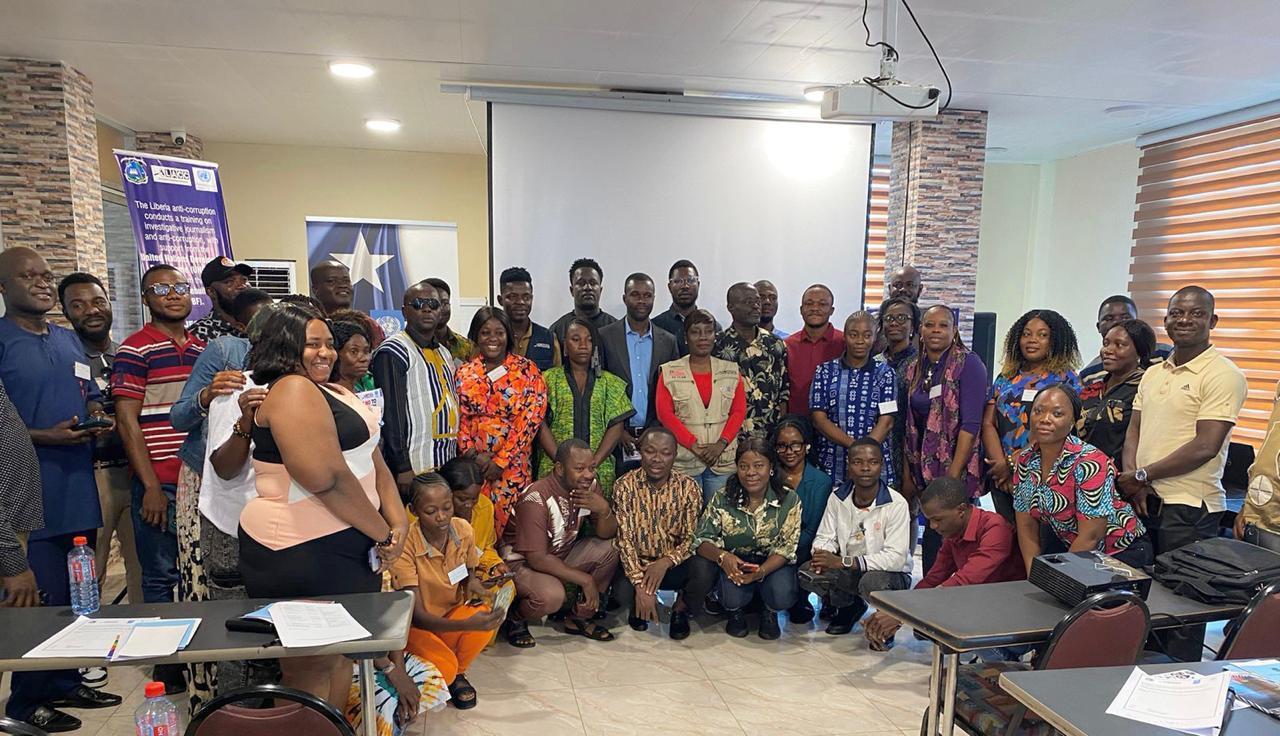Africa-Press – Liberia. The training forum, which is being held under the theme, “Uncovering the Facts: Strengthening Integrity Through Journalism, is aimed at strengthening investigative journalism and bolster social accountability across Liberia.
The Liberia Anti-Corruption Commission (LACC), in partnership with the United Nations Development Program(UNDP), Thursday kickoff a two-day training forum for more then 30 Liberian journalists from across the country in Ganta, Nimba County.
The training forum, which is being held under the theme, “Uncovering the Facts: Strengthening Integrity Through Journalism, is aimed at strengthening investigative journalism and bolster social accountability across Liberia.
According to the organizers, the training is part of the broader project titled, “Empowering Citizens and Communities to Foster Social Accountability and Transparency in Governance and Public Service Delivery,”supported by the UNDP through the United Nations Peacebuilding Fund.
John E. Tommy, Program Manager of the project, giving an overview highlighted the importance of the training as a strategic move to foster collaboration among investigative journalists, civil society organizations (CSOs), and the LACC in the fight against corruption.
He stated, “This workshop is an investment in knowledge, partnership, and integrity. Our aim over the next two days is to enhance the capacity of journalists and CSOs to monitor, report, and advocate against corruption using ethical and evidence-based tools.”
Mr. Tommy emphasized that journalists and civil society actors are crucial in promoting transparency and accountability, shaping governance, and safeguarding public interests.
He expressed optimism that the participants will gain practical insights into the mandate and functions of the LACC, legal frameworks such as asset declaration regimes, and investigative techniques, including the use of artificial intelligence and social media.
Mr. Tommy added that training covers a range of topics, including investigative journalism methodologies, development reporting, ethical social media practices, and the application of digital forensics and data analytics.
Participants, he said, will also review Liberia’s asset declaration regime and discuss how CSOs and media outlets can promote compliance and raise public awareness.
For his part, Trokon Bryant, UNDP-Liberia’s Project Manager, speaking on behalf of UNDP Resident Representative Aliou Mamadou Dia, expressed strong support for this initiative.
He emphasized that empowering journalists with investigative skills and increasing awareness of key anti-corruption laws—such as the LACC Act, the Whistleblower Act, and the Witness Protection Act—is vital for democratic governance.
“Corruption remains a significant obstacle to development and erodes public trust,” Bryant said.
Continuing, Mr. Bryant said, “UNDP is committed to advancing transparency, accountability, and inclusive governance through partnerships with the LACC and other stakeholders. Initiatives like this elevate citizen voices and reinforce the media’s role in fostering resilience and reform.”
He also highlighted innovative approaches, such as the use of community radio, theatrical dramatizations, and digital platforms like the “TALKAY App,” to promote civic engagement and strengthen societal oversight.
Also speaking at the opening, Julius Kanubah, President of the Press Union of Liberia (PUL), expressed concern about the ongoing challenge of corruption in Liberia, noting that the government’s designation of corruption as “public enemy number one” underscores its severity.
He called for genuine, collaborative efforts among government, civil society, and the media to effectively combat the issue.
Mr. Kanubah also criticized the tendency of some organizations to organize journalist training without meaningful engagement with the PUL, stressing the importance of involving key media stakeholders in such initiatives to ensure their effectiveness.
He, however, urged targeted investments in investigative journalism and anti-corruption reporting to institutionalize the fight against corruption within Liberia’s media landscape.
For More News And Analysis About Liberia Follow Africa-Press






